Blog
The attempted assassination was a result possibly of an unleashed bias to overthrow democracy via violence most recently. Which is the wrong direction and wrong message for a so called civilized society. We are better than this, and we obviously need to learn more about compassion and justice through common sense and good will. And Stop promoting violence and the indignation of human existence once and for all.

Show Three Saturday July 14th 2024 5pm running through July 21st; 6 shows at Caponi Art Park in Eagan. Music by Raymond Berg, Lyra Olson, Paul Fontara, Anthony Afful and mick laBriola.
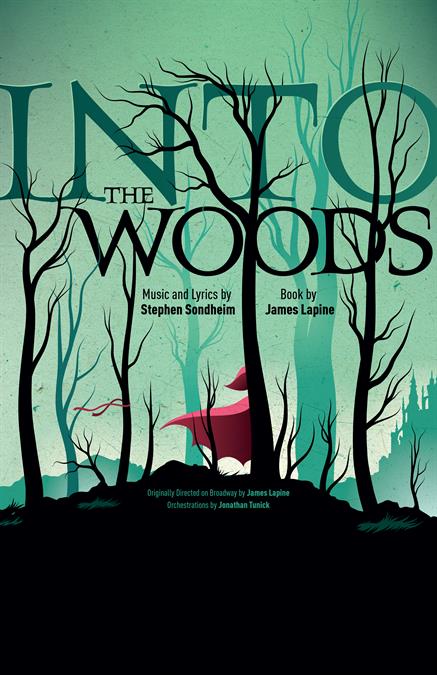
The galaxy was never in danger. For one thing, the Triangulum galaxy (M33), pictured, is much bigger than the tiny grain of rock at the head of the meteor. For another, the galaxy is much farther away — in this instance 3 million light years as opposed to only about 0.0003 light seconds. Even so, the meteor’s path took it angularly below the galaxy. Also the wind high in Earth’s atmosphere blew the meteor’s glowing evaporative molecule train away from the galaxy, in angular projection. Still, the astrophotographer was quite lucky to capture both a meteor and a galaxy in a single exposure — which was subsequently added to two other images of M33 to bring up the spiral galaxy‘s colors. At the end, the meteor was gone in a second, but the galaxy will last billions of years.
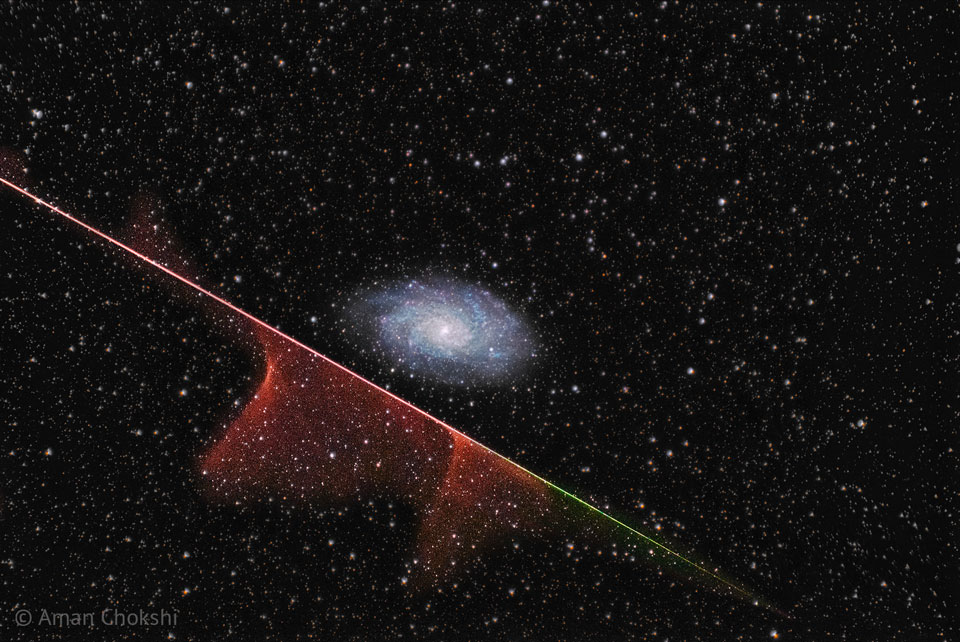
more...
Angélique Kpasseloko Hinto Hounsinou Kandjo Manta Zogbin Kidjo born July 14, 1960) is a Beninese–French singer-songwriter, actress and activist noted for her diverse musical influences and creative music videos. Kidjo was born into a family of performing artists. Her father was a musician, and her mother worked as a choreographer and theatre director. Kidjo has won five Grammy Awards. She is a 2023 Polar Music Prize laureate.
In 2007, Time magazine called her “Africa’s premier diva.” She performed at the Tokyo 2020 Olympic Games Opening Ceremony on July 23, 2021. On September 15, 2021, Time included her in their list of the 100 most influential people in the world.
Angelique Kidjo has collaborated with many artists including Bono, Branford Marsalis, John Legend, Jimmy Buffett, Peter Gabriel, Alicia Keys, Carlos Santana, Josh Groban, Philip Glass, Sting, Ziggy Marley, Yemi Alade, Burna Boy, Johnny Clegg, Dave Matthews, Tina Turner, Alpha Blondy and Davido.
Her album Logozo is ranked number 37 in the Greatest Dance Albums of All Time list compiled by Vice magazine’s Thump website.
Kidjo is fluent in five languages: Fon, French, Yorùbá, Gen (Mina) and English. She sings in all of them, and she also has her own personal language, which includes words that serve as song titles such as “Batonga”. “Malaika” is a song sung in the Swahili language. Kidjo often uses Benin’s traditional Zilin vocal technique and vocalese.
more...
James Beck Gordon (July 14, 1945 – March 13, 2023) was an American musician, songwriter, and convicted murderer. Gordon was a session drummer in the late 1960s and 1970s and was the drummer in the blues rock supergroup Derek and the Dominos.
In 1983, in a psychotic episode associated with undiagnosed schizophrenia, Gordon murdered his mother and was sentenced to 16 years to life in prison, remaining incarcerated until his death in 2023.
Gordon was raised in the San Fernando Valley of Los Angeles and attended Grant High School. He passed up a music scholarship to UCLA in order to begin his professional career in 1963, at age 17, backing the Everly Brothers. He went on to become one of the most sought-after recording session drummers in Los Angeles. The protégé of studio drummer Hal Blaine, Gordon performed on many notable recordings in the 1960s, including Pet Sounds, by the Beach Boys (1966); The Spirit of ’67, by Paul Revere & the Raiders; Gene Clark with the Gosdin Brothers, by Gene Clark (1967); The Notorious Byrd Brothers, by the Byrds (1968); and the hit “Classical Gas“, by Mason Williams (1968). At the height of his career Gordon was reportedly so busy as a studio musician that he flew back to Los Angeles from Las Vegas every day to do two or three recording sessions and then returned in time to play the evening show at Caesars Palace.
more...
Woodrow Wilson Guthrie ( July 14, 1912 – October 3, 1967) was an American singer-songwriter and composer who was one of the most significant figures in American folk music. His work focused on themes of American socialism and anti-fascism. He inspired several generations both politically and musically with songs such as “This Land Is Your Land“.
Guthrie wrote hundreds of country, folk, and children’s songs, along with ballads and improvised works. Dust Bowl Ballads, Guthrie’s album of songs about the Dust Bowlperiod, was included on Mojo magazine’s list of 100 Records That Changed The World, and many of his recorded songs are archived in the Library of Congress.Songwriters who have acknowledged Guthrie as a major influence on their work include Steve Earle, Bob Dylan, Phil Ochs, Johnny Cash, Bruce Springsteen, Robert Hunter, Harry Chapin, John Mellencamp, Pete Seeger, Andy Irvine, Joe Strummer, Billy Bragg, Jerry Garcia, Bob Weir, Jeff Tweedy, Tom Paxton, Brian Fallon, Sean Bonnette, and Sixto Rodríguez. He frequently performed with the message “This machine kills fascists” displayed on his guitar.
more...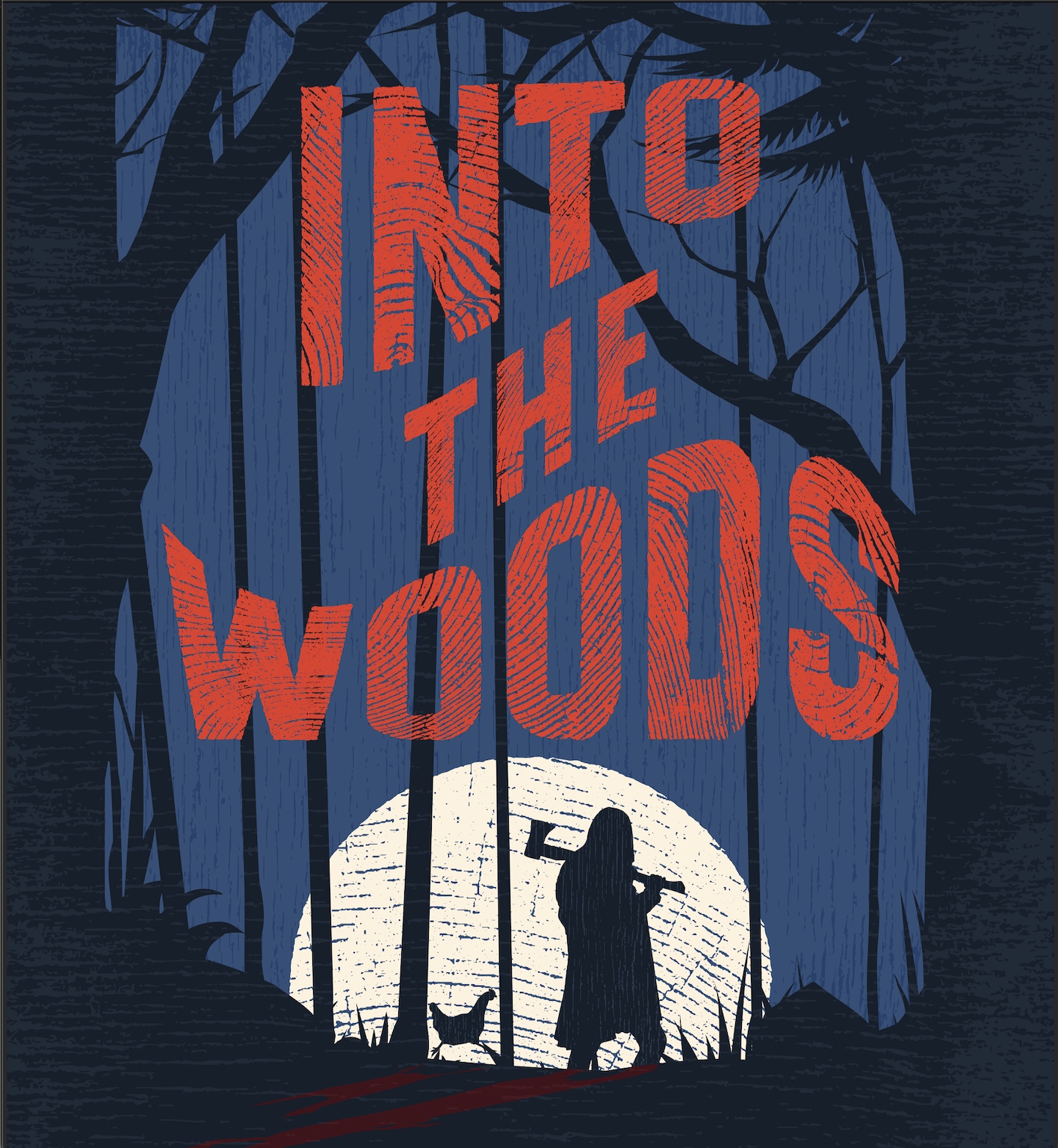
Screenshot
At the Heart of IC 2948 the “Running Chicken Nebula” are large clouds of gas and dust as this region produces newborn stars in what we call a “ Star Factory.” In the upper left corner are a series of Boc globules that remind us of many solar systems like our own, floating in interstellar space. It’s the brightest emission and reflection nebulae in the constellation of Centaurus and lies around 6,500 light-years away.
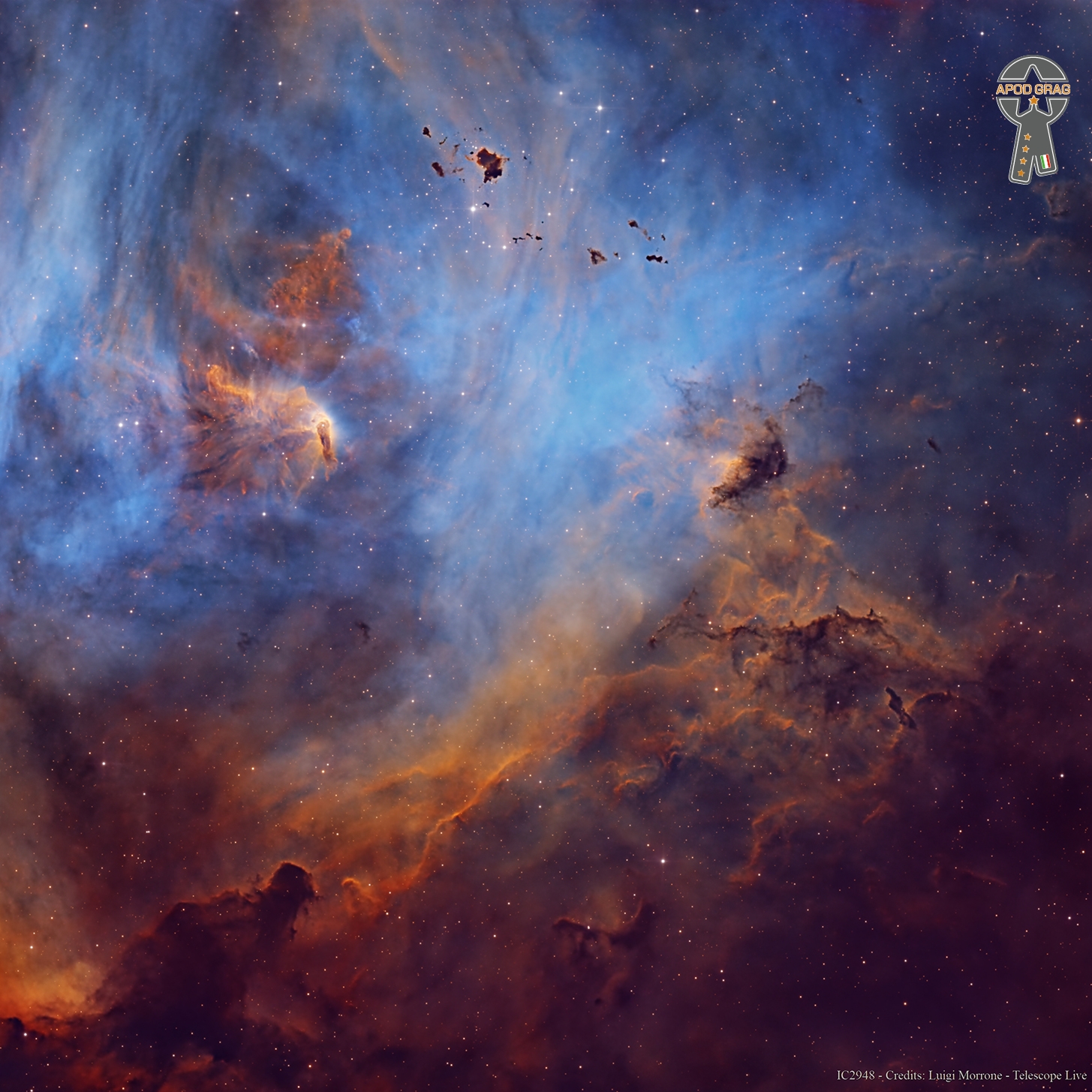
James Roger McGuinn (born James Joseph McGuinn III; July 13, 1942)is an American musician, best known for being the frontman and leader of the Byrds. He was inducted into the Rock and Roll Hall of Fame for his work with the Byrds. As a solo artist he has released 10 albums and collaborated with, among others, Bob Dylan, Tom Petty and Chris Hillman. The 12-string Rickenbacker guitar is his signature instrument.
McGuinn was born and raised in Chicago, Illinois, son of James Joseph McGuinn Jr (b. 1909) and Dorothy Irene (b. 1911), daughter of engineer Louis Heyn. His parents worked in journalism and public relations, and during his childhood, they had written a bestseller titled Parents Can’t Win. He attended the Latin School of Chicago. He became interested in music after hearing Elvis Presley‘s “Heartbreak Hotel“, and asked his parents to buy a guitar for him. (During the early 1980s, he paid tribute to the song that encouraged him to play guitar by including “Heartbreak Hotel” in his autobiographical show.) Around the same time, he was also influenced by country artists and/or groups such as Johnny Cash, Carl Perkins, Gene Vincent and the Everly Brothers.
more...Albert Ayler (July 13, 1936 – November 25, 1970) was an American avant-garde jazz saxophonist, singer and composer.
After early experience playing R&B and bebop, Ayler began recording music during the free jazz era of the 1960s. However, some critics argue that while Ayler’s style is undeniably original and unorthodox, it does not adhere to the generally accepted critical understanding of free jazz. In fact, Ayler’s style is difficult to categorize in any way, and it evoked incredibly strong and disparate reactions from critics and fans alike. His innovations have inspired subsequent jazz musicians.
His trio and quartet records of 1964, such as Spiritual Unity and The Hilversum Session, show him advancing the improvisational notions of John Coltrane and Ornette Colemaninto abstract realms where whole timbre, and not just mainly harmony with melody, is the music’s backbone. His ecstatic music of 1965 and 1966, such as “Spirits Rejoice” and “Truth Is Marching In”, has been compared by critics to the sound of a brass band, and involved simple, march-like themes which alternated with wild group improvisationsand were regarded as retrieving jazz’s pre-Louis Armstrong roots. Ayler disappeared on November 5, 1970, and he was found dead in New York City’s East River on November 25, a presumed suicide.For some time afterwards, rumors circulated that Ayler had been murdered, with a long-standing urban legend that the Mafia had tied him to a jukebox.
more...
Peter Michael Escovedo Jr. (born July 13, 1935 in Pittsburg, California) is an American percussionist.
With his two brothers, he formed the Escovedo Bros Latin Jazz Sextet, before Carlos Santana hired Pete and Coke Escovedo for his group, Santana. Peter led the 14–24 piece Latin big band Azteca.
more...Leroy Vinnegar (July 13, 1928 – August 3, 1999) was an American jazz bassist. Born in Indianapolis, Indiana, United States, the self-taught Vinnegar established his reputation in Los Angeles, California, during the 1950s and 1960s. His trademark was the rhythmic “walking” bass line, a steady series of ascending or descending notes, and it brought him the nickname “The Walker”. Besides his jazz work, he also appeared on a number of soundtracks and pop albums, notably Van Morrison‘s 1972 album, Saint Dominic’s Preview.He recorded extensively as both a leader and sideman. He came to public attention in the 1950s as a result of recording with Lee Konitz, André Previn, Stan Getz, Shorty Rogers, Chet Baker, Shelly Manne, Joe Castro and Serge Chaloff.
more...Opening night Friday July 12th 7pm running through July 21st; 6 shows at Caponi Art Park in Eagan. Music with Raymond Berg, Lyra Olson, Paul Fontara, Anthony Afful and mick laBriola.

more...
Planetary nebula Jones-Emberson 1 is the death shroud of a dying Sun-like star. It lies some 1,600 light-years from Earth toward the sharp-eyed constellation Lynx. About 4 light-years across, the expanding remnant of the dying star’s atmosphere was shrugged off into interstellar space, as the star’s central supply of hydrogen and then helium for fusion was depleted after billions of years. Visible near the center of the planetary nebula is what remains of the stellar core, a blue-hot white dwarf star. Also known as PK 164 +31.1, the nebula is faint and very difficult to glimpse at a telescope’s eyepiece. But this deep image combining over 12 hours of exposure time does show it off in exceptional detail. Stars within our own Milky Way galaxy as well as background galaxies across the universe are scattered through the clear field of view. Ephemeral on the cosmic stage, Jones-Emberson 1 will fade away over the next few thousand years. Its hot, central white dwarf star will take billions of years to cool.
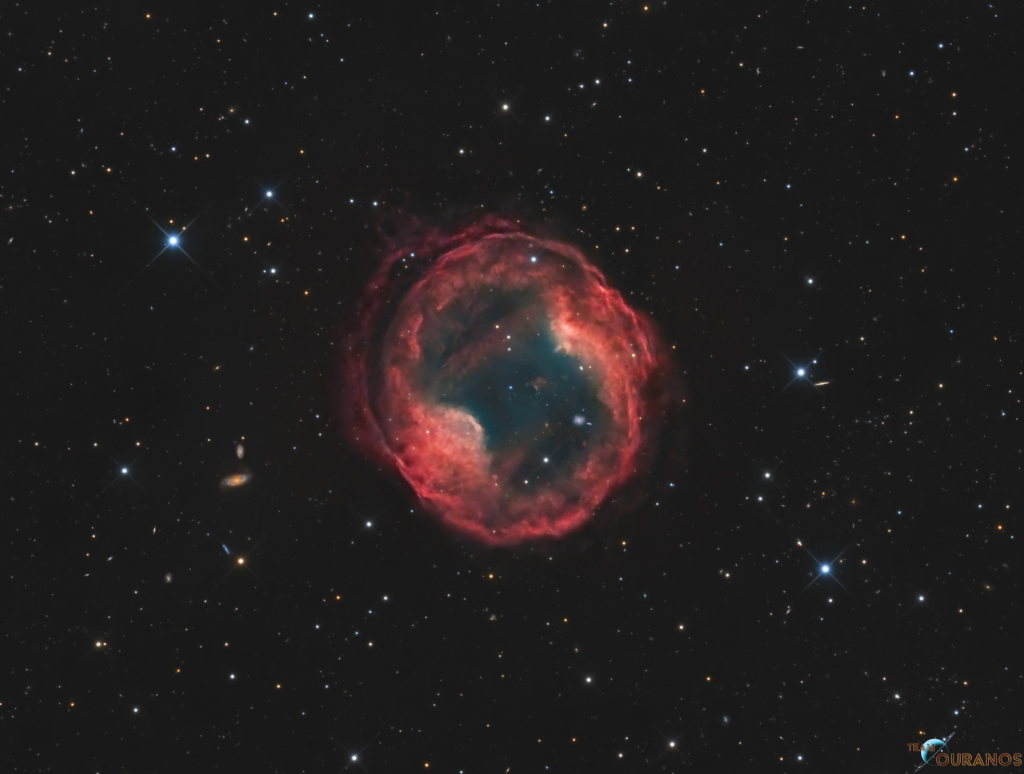
More Posts
- Joe Brother Cornbread Thomas Day
- World Music with Mamane Barka
- Daily Roots with Joya Landis
- The Cosmos with M16
- Tal Wilkenfeld Day
- Ronnie Mathews Day
- Wynton Kelly Day
- World Music with Le Mystere des Voix Bulgares
- Daily Roots with Bongo Herman & Bingy Bunny
- The Cosmos with NGC 2237
- Jaco Pastorius Day
- Bette Midler Day
- Sandy Nelson Day
- Ike Issacs Day
- World Music with Tamazight
- Daily Roots with Bunny Brown
- Shabbat for the Soul service Mt Zion Temple
- Rhythm Roots Workshop Solo Performance
- The Cosmos with NGC 7552
- Jack Sheldon Day